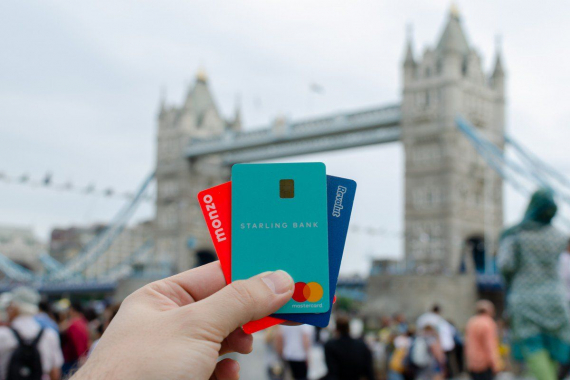
A fifth (20%) of UK individuals haven’t visited a bank branch since before the Covid-19 pandemic according to new research from KPMG UK, as individuals increasingly turn to managing their finances online.
Just one in ten individuals (13%) have visited a bank branch in the last week with 22% having visited once within the last six months.
As the pandemic accelerates the number of individuals transitioning to online banking, over a quarter of individuals (27%) believe an app that is simple to use is now the most important interaction they have with their bank. Being able to visit a bank branch in person was the second most important (21%) when it comes to banking interactions.
Karim Haji, EMA and UK Head of Financial Services, KPMG, comments: “It’s important for UK banks to handle the transition towards a more digital society sensitively and pragmatically. Although many individuals are visiting bricks and mortar bank branches less frequently, they’re often vital for the most vulnerable members of society to manage their personal finances.”
Newer entrants to the UK banking market whose apps tend to offer more features than the larger incumbents may look to benefit from the accelerated shift towards online banking. Many individuals already have more than one bank account, just under a third of respondents (31%) for example have two bank accounts, while 19% have three. One in ten individuals (12%) have four or more bank accounts.
Of those individuals with at least two bank accounts, 23% said they opened an additional account for a better digital offering while 24% opened an account for better customer service.
While challenger banks often appeal to individuals for their technical prowess and customer service, three quarters (75%) of Brits say their main source of income is still paid into a traditional high street bank. Over half of individuals (58%) say they use their other bank accounts for saving, while 30% use them to manage day-today spending.
Karim Haji, added: “Individuals today tend to have multiple banking relationships whereas in the past they would only have one. New entrants to the UK banking market have shown that they can gain customers but convincing individuals to shift everything away from their incumbent bank is much more difficult because people in the UK are very loyal. Even with the current account switching service which makes it very easy to switch banks, there remains a perception that shifting your current account is a hassle.
“Another hurdle that challenger banks face is getting their existing customer base to expand into new products. Newer banks have built up large customer bases by offering snazzy apps and features linked to current accounts, but they are not converting those customers into mortgage or investment products where they can actually make money.
“The legacy banks are also starting to fight back against the challengers in the fight to win over and retain customers. They might not be able to offer the trendy apps or cards from the challengers, but they are promoting other areas such as better purchase protection, loyalty rewards and support with credit scoring.”
Banks in the UK score highly for customer service
Encouragingly three quarters (75%) of UK individuals say they are happy with the service their bank provides, with 34% being very happy. Just 4% are unhappy with their bank’s service.
The findings are released following the publication of KPMG’s 2021 UK Customer Experience Excellence Report in November which evaluated the experiences 9,995 UK consumers had with 282 organisations2. British consumers voted that the brands with the best customer experience are:
Notes to editors:
Research conducted, on behalf of KPMG UK by OnePoll in November 2021, with a nationally representative sample size of 2,000 UK Adults
Research Methodology:
The 2021 UK Customer Experience Excellence (CEE) research was conducted online between 28th May and 29th June 2021, exploring experiences with organisations over the previous six months. 9,995 UK consumers were interviewed, and 282 brands were included in the final ranking.
The Customer Experience Excellence (CEE) score is a weighted average of each brand’s score, as mapped against The Six Pillars that drive brand advocacy and loyalty. The Six Pillars of Customer Experience comprise of the following:
- Personalisation – Brands using individualised attention to drive an emotional connection
- Integrity – Brands being trustworthy and engendering trust
- Expectations – Managing, meeting and exceeding customer expectations
- Resolution – Turning a poor experience into a great one
- Time & Effort – Minimising customer effort and creating frictionless processes
- Empathy – Achieving an understanding of the customer’s circumstances to drive a deep rapport
Follow us on twitter: @kpmguk
For further information please contact:
KPMG Media Relations
Gerard Swinley
M: +44 7510 375540
About KPMG
KPMG LLP, a UK limited liability partnership, operates from 21 offices across the UK with approximately 16,000 partners and staff. The UK firm recorded a revenue of £2.3 billion in the year ended 30 September 2020.
KPMG is a global organization of independent professional services firms providing Audit, Legal, Tax and Advisory services. It operates in 147 countries and territories and has more than 219,000 people working in member firms around the world. Each KPMG firm is a legally distinct and separate entity and describes itself as such. KPMG International Limited is a private English company limited by guarantee. KPMG International Limited and its related entities do not provide services to clients.






































